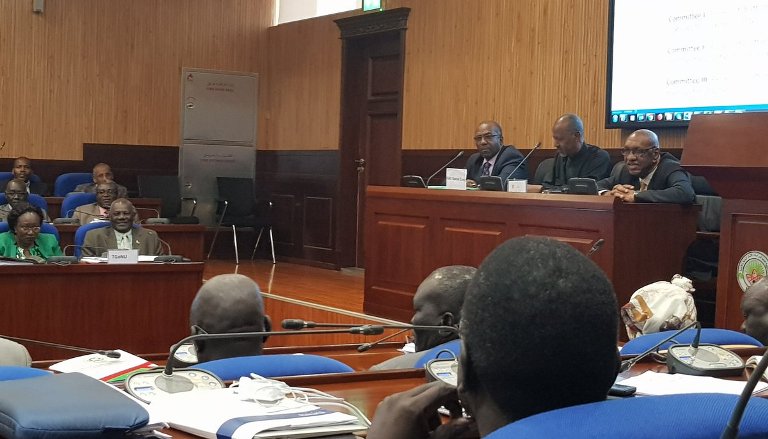IGAD envoy meets holdout alliance over peace in South Sudan

December 13, 2018 (JUBA) – The non-signatories groups of the South Sudan National Democratic Alliance (SSNDA) told the IGAD special envoy they are ready for talks to address the root causes of the South Sudan crisis, in a first meeting three months after the signing of the revitalized peace agreement.
The former factions of the South Sudan Opposition Alliance said in a statement extended to Sudan Tribune on Thursday that the meeting with Ismail Wais took place in Addis Ababa on Tuesday 11 December.
“The meeting was intended to better understand the reason(s) SSNDA declined to sign the Revitalized Agreement on the Resolution of Conflict in South Sudan R-ARCSS,” said Kwaje Lasu the alliance spokesperson.
After emphasising that the signed deal failed to address the root causes of the conflict, Kwaje said they expressed their readiness to participate in a “political dialogue that is genuinely meant to address (it)…. on a self-sustaining basis”.
The SSNDA delegation, which was not identified in the statement, also pledged to hand over “a formal position letter on its position of not signing the peace agreement” and reiterated its commitment to the cessation of hostilities agreement of 21 December 2017.
The IGAD Council of Ministers, on 16 November 2018, directed the Special Envoy for South Sudan to reach out the non-signatories to join the peace agreement.
The executive body of the regional bloc further warned that the non-signatories would “be labelled spoilers of the peace process” if they reject this ultimatum.
But the opposition alliance reiterated that they “will not submit to the R-ARCSS in its current state because it’s rather an accommodative agreement than a solution to the current crisis bedevilling our beloved country and people”.
The SSNDA is chaired by Thomas Cirilo Swaka is composed of four groups NAS; NDM; SSNMC; UDRA.
All the groups of the holdout opposition umbrella rejected revitalized peace pact pointing it does not break the concentration of powers in the hands of the president and his government.
Instead, they call for a genuine federal system to be established in the country during the transitional period. Some of the holdout groups say they specifically want a three-region federal system.
(ST)
